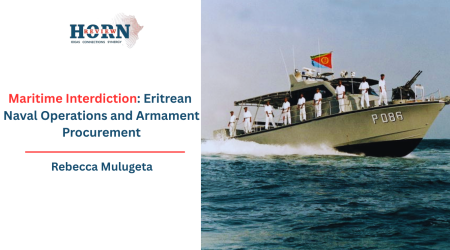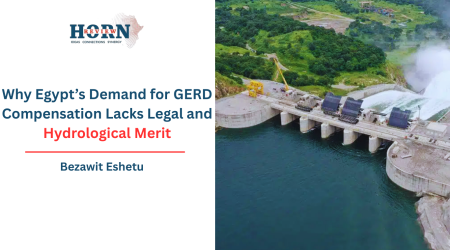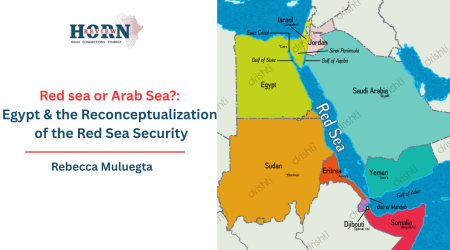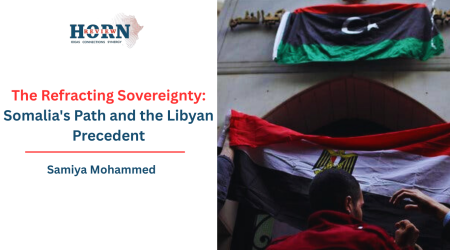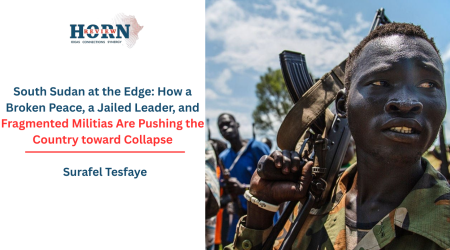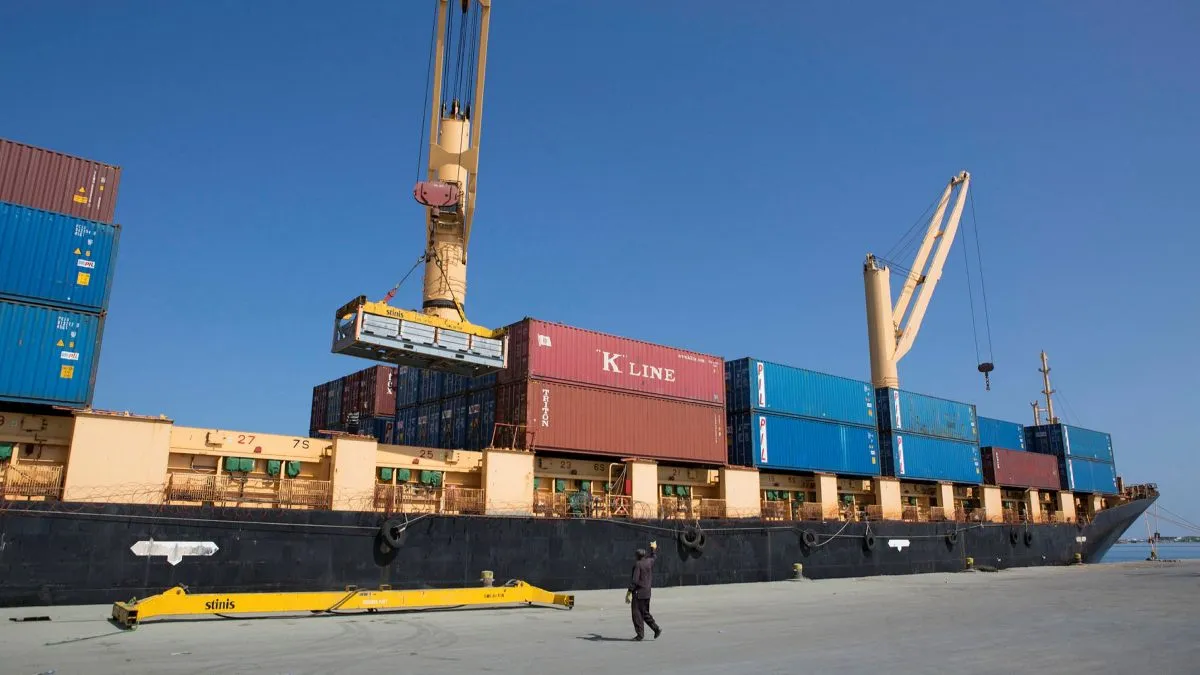
18
Aug
Docking with Dominance: GOODRICH Charts in the Horn’s Lifeline
When Shipping Lanes Become Strategic Levers
Beneath the surface of routine maritime announcements, a new current stirs in the Red Sea. The Saudi Ports Authority’s Mawani of the RSX1 service linking Jeddah, Port Sudan, Djibouti, and Jebel Ali arrives a subtle, significant shift in the region’s maritime geometry. While framed as commercial progress, this network casts a long, shadow, particularly for nations whose lifelines thread through these waters. For Ethiopia, reliant on Djibouti as its absolute maritime artery, this development warrants more than a passing glance as it is of of a tightening grip, a potential vulnerability amplified within an already intricate geo politica.
This new service, operated by GOODRICH, consolidates Djibouti’s position as the undisputed gate for the Horn’s largest economy. Every container moved, every TEU capacity added, reinforces its centrality. Mawani’s vision is clear that elevating Jeddah Islamic Port , with its formidable 130 million ton capacity and 62 berths, into a global logistics titan connecting continents. Integrating Djibouti so seamlessly into this ambitious Saudi network doesn’t streamline trade and it subtly anchors Ethiopian supply chains deeper within an infrastructure increasingly influenced by Riyadh’s strategy.
This is not solely about efficiency. Maritime routes are the silent conduits of power, the veins through which economic vitality and national security flow. The RSX1 service, while boasting a modest 720 TEU capacity, represents a deliberate integration. It binds Jeddah, Sudan, Djibouti, and the UAE via Jebel Ali, itself a global powerhouse into a tighter commercial and, inevitably, strategic constellation.
For Ethiopia, sourcing over 95% of its imports and exports through Djibouti, this deepening interdependence carries an inherent weight. The diversification of its port access long a stated goal becomes not an economic imperative, but a pressing strategic buffer against the concentration of its critical lifeline within this newly reinforced network.
The concern isn’t malice, but momentum. Mawani’s initiative, aligned with Saudi Arabia’s National Transport and Logistics Strategy, is a leverage. It leverages Jeddah’s infrastructure to draw regional hubs into its orbit. Djibouti, already hosting military bases from global powers, sees its commercial indispensability to Ethiopia further cemented. The very port that sustains its booming economy also represents its most significant external vulnerability. The RSX1 service, by enhancing Djibouti’s connectivity within a Saudi centric work, inadvertently tightens this knot. It makes the precariousness of having a single, overwhelmingly dominant maritime access point one now more intricately woven into a web where Ethiopia holds no direct strings.
Labeling the RSX1 as inherently “dangerous” oversimplifies. Its dangers are latent, contingent on future tensions, policy shifts, or regional instability. It is a potential pressure point, not an active weapon. dismissing it as another shipping line is equally naive. This is infrastructure as strategy. It alters the regional balance of logistical influence, concentrating critical pathways.
For Ethiopia, it serves as a metallic reminder echoing in the clang of containers at Jeddah and Djibouti that its path to resilient sovereignty demands accelerating the diversification of its maritime gateways with unparalleled urgency.
Berbera, Lamu, Assab these are not just alternatives but they represent the vital slack in the system, the redundancy needed to weather the unforeseen storms that can gather around even the most efficient of shipping lanes.
The RSX1 sails under the banner of commerce and connection. But in the arena of the Red Sea, where trade routes are lifelines and ports are power bases, its arrival signals a quiet but undeniable recalibration. For those dependent on the currents it navigates, vigilance isn’t paranoia it’s the price of sovereignty in a region where the sea itself is a mental. The game isn’t new, but the pieces are moving with renewed purpose. Ethiopia’s next move must be decisive.
By Samiya Mohammed, Researcher, Horn Review
REFERENCES
- https://www.shipmanagementinternational.com/news/new-shipping-service-launched-between-jeddah-sudan-djibouti-and-uae#:~:text=New%20shipping%20service%20introduced%20between%20Jeddah%2C%20Sudan%2C%20Djibouti%20and%20UAE,-Breaking%20News&text=The%20Saudi%20Ports%20Authority%20(Mawani,Jeddah%20Islamic%20Port%20(JIP)
- https://www.maritimegateway.com/goodrich-to-launch-rsx1-red-sea-service/
- https://www.shipmanagementinternational.com/news/new-shipping-service-launched-between-jeddah-sudan-djibouti-and-uae
- https://mecouncil.org/publication/ethiopias-quest-for-a-seaport-a-threat-to-regional-stability/
- https://medium.com/@thomasarnosander/ethiopia-strengthens-trade-and-economy-through-access-to-the-port-of-berbera-19aa4f0e8a6f
- https://mecouncil.org/publication/ethiopias-quest-for-a-seaport-a-threat-to-regional-stability/
- https://press.et/herald/?p=111767

